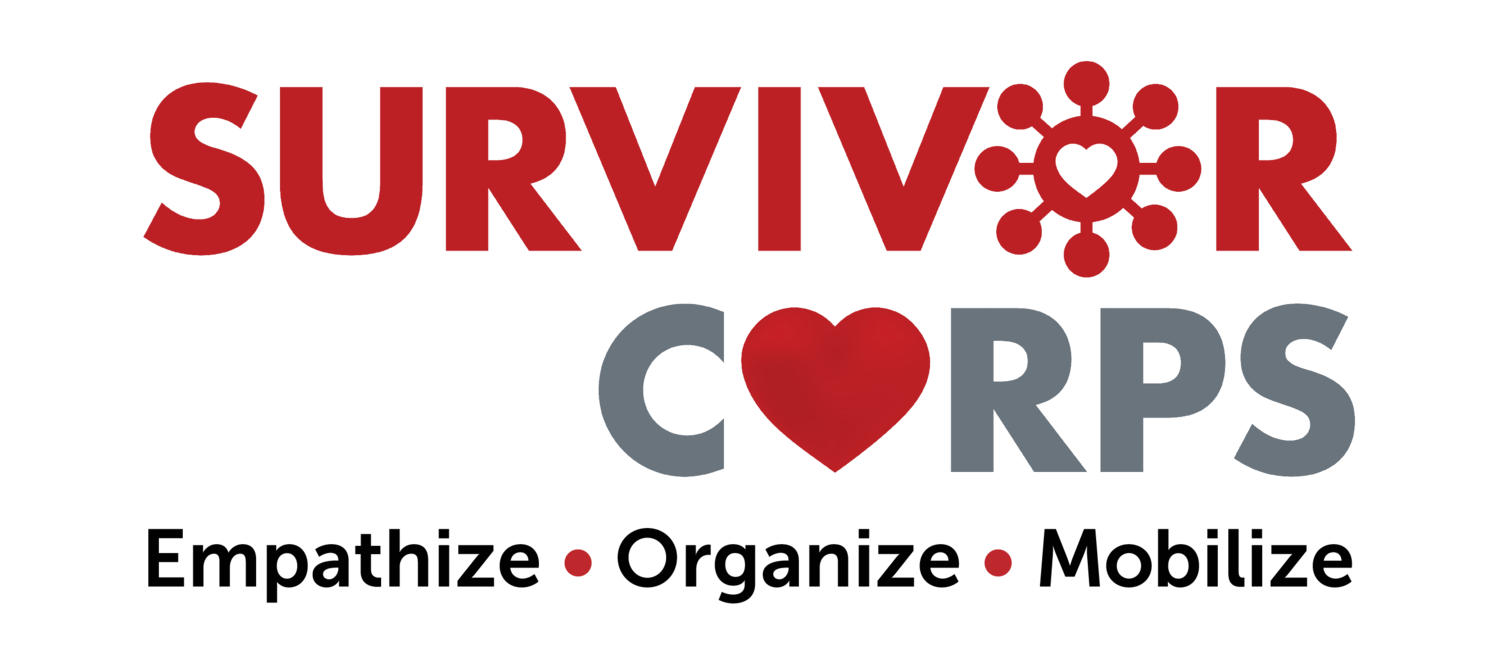
#EpicenterOfHope #StrongerTogether
Survivor Corps is the largest grassroots movement in America dedicated to supporting and advocating for individuals with COVID-19 and long COVID.
We have quickly evolved into one the most active and robust COVID-19 data sets and research tools in the world. We are continually connecting, supporting and educating those affected by COVID-19 (and their colleagues, families and friends).
We strive to motivate and mobilize as many as possible to support all ongoing Scientific, Medical and Academic research in order to improve our understanding of this disease and help develop health care pathways and options for those suffering with acute and long term symptoms. We hope to help get people back into their homes, their familes and their communities and, even better, back to work, all while fostering the spirit of unity, compassion and solidarity that is urgently needed during this time of crisis.
Every day, thousands of people across the country are being infected with COVID-19.
COMMUNITY: Join our Facebook group for information, support, community, webinars and news from around the country. We also have an active Instagram page and Twitter page.
TAKE ACTION: Register for medical studies and clinical trials - be part of the Citizen Science collaboration to help end this pandemic and find answers for those experiencing the long-term effects of COVID-19 infection.
The United States Library of Congress has selected the Survivorcorps.com website
for inclusion in the nation's historic Coronavirus Web Archive.
The team at Survivor Corps created, designed and developed this website to provide support, information and education about this developing pandemic to COVID-19 patients - to help connect patients to researchers and to help facilitate the nation's COVID-19 response.
Selection for the Library’s archive demonstrates and reflects the significant role that Survivor Corps has continued to play in the U.S. response to the pandemic, and our leadership in Patient Advocacy and Community mobilization. Access to this website remains intact online, and is available at the Library of Congress in Washington, DC, and on the library's public access website now.


